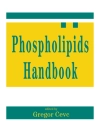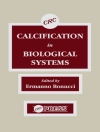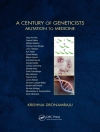This book provides an overview of bidirectional communication between gut-microbiome-brain, pathways, nutrients, and metabolites that are involved in microbiota gut-brain axis (MGBA) interactions. Further it reviews the relevance of this axis in the neurological disorders and potential therapeutic interventions, involving gut microbiome or probiotics and prebiotics which can ameliorate the neurological disorders. The book examines the role of gut microbiota in the establishment and hemostasis of innate immune response and explores the possibility of development of microbiome-targeted therapeutic interventions. Notably, the book discusses the role of the gut microbiota and immune system on the maintenance of brain functions and the development of neurological disorders. It also highlights the recent advances in improving neurological diseases by phytochemicals, prebiotics and probiotics. This book is useful for researchers working in neuropharmacology, Clinical Research, toxicology, neurodegeneration, and stroke biology.
Table of Content
Gut Microbiome Brain Axis: An Introduction.- Cross talk between gut microbiota and host immune cells.- Microbiota-Gut-Brain Axis and Neurodegenerative Disorder.- Gut Microbiota Regulation of Cerebral Stroke.- Aging: Impact of Gut Microbiota.- Gut Microbiome Regulation of Appetite and Neurological Disorders.- Human diets, Gut microbiome and Neuroinflammation.- Dietary Fatty acids, Gut microbiome and Gut-Brain communication: A Current perspective.- Role of Short Chain Fatty Acids from Gut Microbiota in Neuroendocrine Pathogenesis Management.- Potential role of probiotics on gut microbiota in neurological disease.- Reversal of metabolic disorder through the restoration of gut microbiota.- Gut Microbiome and Diet: Promising Approach for Treatment of Cognitive Impairment.- Nanoplastics, Gut microbiota and Neurodegeneration.- Gut Microbiome, COVID-19, and Neurological Impairment.- Tools to study Gut Microbiome.- Germ-Free Mice Technology: opportunity for Future Research.- Gut Microbiome and Neurodegeneration: A Bioinformatics Approach.
About the author
Dr. Amit Kumar Tripathi is working as Assistant Professor, Clinical Research Division, School of Basic and Applied Science, Galgotias University, Greater Noida, India. He has done his Doctoral Research at CSIR-Central Drug Research Institute and was awarded by Jamia Hamdard, New Delhi. His doctoral and post-doctoral research was focused on the molecular mechanism to understand cerebral stroke and cancer. He has several years of research experience on animal models of various neurological disorders. He has published his research work in various peer-reviewed international journals, books, and chapters. He is involved in teaching various courses such as Recombinant DNA Technology, Nanotechnology, Molecular Therapeutics, Microbial Technology, Animal Biotechnology, Yellow Biotechnology at Bachelor and Master of Science in School of Basic and Applied Science, Galgotias University. He has been awarded several national and international awards for his contribution to research in health anddisease.
Dr. Malini Kotak is an Associate Scientist in the Health and Hygiene segment at ITC Ltd., India’s leading Fast Moving Consumer Goods Company. During her doctoral training at the University of Texas at Arlington and post-doctoral training at ITC Ltd., she has extensively worked on gut, hand, skin and vaginal microbiome and its association with human health and disease. She has more than 10 years of work experience in industry and academia and has done cutting-edge research in fields like biotherapeutics, microbiome, precision medicine, genomics and cancer biology. She has published several research papers in reputed journals, book chapter and is a recipient of several research fellowships in India and abroad. Her current research involves development of novel products which are of relevance in health and hygiene industry.












